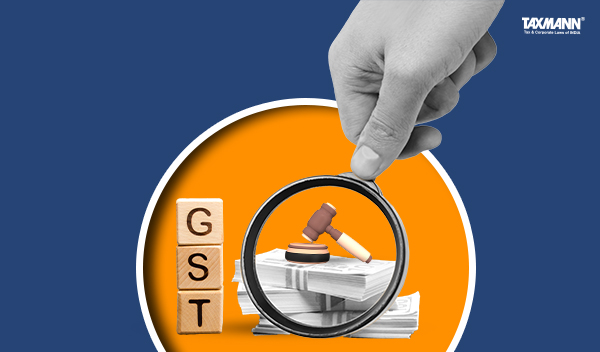[Opinion] Prosecution Under GST | Provisions Valid or Constitutional Overreach?
- News|Blog|GST & Customs|
- 3 Min Read
- By Taxmann
- |
- Last Updated on 10 June, 2024

Manoj Mishra & Shilpa Verma – [2024] 163 taxmann.com 215 (Article)
A significant legal battle is unfolding before the Supreme Court (SC) concerning the constitutional validity of arrest made under Goods and Services Tax (GST). In a batch of over 200 writ petitions, the provisions which deal with the power to arrest and prosecute individuals for GST and customs related offenses have been challenged.
Pertinently, Section 69 of the CGST Act empowers tax authorities to arrest individuals suspected of various offences, including tax evasion and fraudulent activities. Section 132 provides for the arrest of persons involved in certain specified offences under the Act. While these provisions aim to strengthen tax administration and deter non-compliance, questions arise regarding their validity in the absence of explicit legislative authority to enact laws related to offences. Before we delve into the key arguments, it is important to understand the constitutional framework.
Constitutional Framework and Legislative Authority
The power to enact laws concerning taxation and offences therein finds its roots in the Constitution of India. Under Article 246, the distribution of legislative powers between the Union and the States was delineated, with List I (Union List) and List II (State List) enumerating subjects on which it can legislate. Notably, under Entry 93 of List I, the Union Government was empowered to legislate on matters related to “offences against laws with respect to any of the matters in this List.” Similar power was granted under Entry 64 of List II to the State Governments authority.
Article 246A, introduced by the 101st Constitutional Amendment Act, specifically empowered both Parliament and State Legislatures to make laws concerning goods and services tax (GST).
It is being challenged that the provisions under GST Act which authorize arrest and prosecution for GST-related offenses, fall outside the scope of Article 246A. It is being argued that Article 246A only grants the power to levy and collect GST and does not empower to legislate on the matters of arrest or criminal procedures. Thus, the enactment of these sections is beyond the legislative competence of the Union or the states.
While the provisions from Customs Act have also been challenged, it would remain secure from constitutional validity framework as the relevant entry is duly prescribed concerning offences related to import and export of goods. However, the challenge is primarily from a procedural standpoint.
Key grounds challenged
The primary grounds for challenging the constitutional validity of Sections 69 and 132 include concerns over legislative competence, violations of fundamental rights, procedural lapses and the legal interpretation.
- Legislative framework: The petitioners assert that Article 246A does not authorize Parliament to legislate on matters of arrest and criminal prosecution. These areas fall within the domain of Article 246 and the respective lists in the Seventh Schedule. By extending their power to these areas, the provisions exceed the intended scope of GST legislation.
- Violation of fundamental rights: It is being argued that the provisions infringe upon Article 21 of the Constitution, which guarantees the right to life and personal liberty. The provisions allow for arrests without adequate safeguards and due process, making them draconian and oppressive. The ability to arrest based on “reason to believe” without stringent procedural checks opens the door to potential abuse and arbitrary detention.
- Procedural lapse: The petitioners highlight that the procedures under these sections do not align with established procedures in the Code of Criminal Procedure (CrPC). This non-compliance leads to arbitrary arrests and investigations. The lack of clear procedural guidelines for arrests under the CGST Act contrasts sharply with the detailed requirements laid out in the CrPC, undermining the rule of law. Further, the officers of GST and customs are not police officers as mandated under CrPC.
- Interpretation of ‘reason to believe’: The petitioners also argue the current provisions specify about officer having ‘reasons to believe’ rather than a requirement for ‘reasons to be recorded in writing’ and other checks which make the provisions prone to misuse.
Click Here To Read the Full Article
Disclaimer: The content/information published on the website is only for general information of the user and shall not be construed as legal advice. While the Taxmann has exercised reasonable efforts to ensure the veracity of information/content published, Taxmann shall be under no liability in any manner whatsoever for incorrect information, if any.



 CA | CS | CMA
CA | CS | CMA
